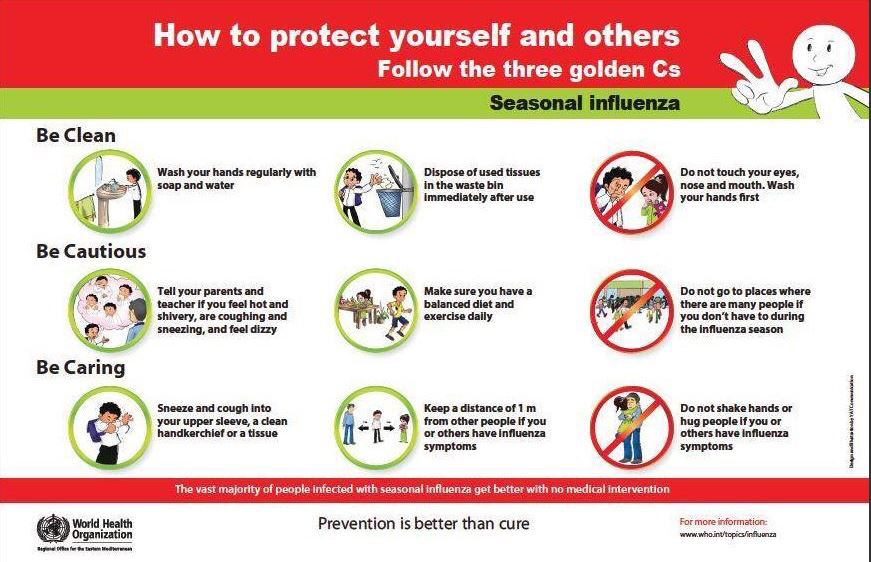
Flu Facts
Credit: WHO
First Reported Death of a Child Occurred in Riverside County
“This is a tragic reminder that the flu is a serious illness for people of all ages and kills thousands of Americans each year,” said Dr. Smith. “If you haven’t been immunized yet this season, getting flu shots for you and your family now can still help protect you this winter.”
Since the beginning of the influenza season, CDPH has received reports of 14 influenza-associated deaths, including the child in Riverside. This count represents a fraction of the total flu deaths statewide because only deaths in people younger than 65 are reported to the state and not all influenza-related deaths are easily attributable to influenza.
Hospitals statewide have been impacted by a surge in influenza patients, and hospitalizations for pneumonia and influenza at Kaiser Permanente hospitals in Northern California during the week ending January 7 reached 10.2 percent, the highest level recorded in 10 years. CDPH has also received reports of 83 influenza outbreaks, mostly in long-term care facilities, more than twice the reports received in recent years.
“We are closely monitoring the impact of influenza on health care facilities,” said Dr. Smith. “Some acute care hospitals in California are full and have diverted patients to other facilities.”
For anyone who has not yet received a flu shot this season, it is not too late. Influenza activity usually continues for several months, and it is still early in the season. Because it takes about two weeks after vaccination for antibodies that protect against influenza, it is best to get vaccinated as soon as possible.
CDPH recommends all Californians aged six month and older, including pregnant women, should get the annual flu vaccine. The flu virus circulating this season closely matches the vaccine, suggesting that the vaccine will provide protection against influenza and reduce the risk of severe disease.
The flu vaccine prevents disease due to the most serious wintertime virus, but other viruses are also circulating now. Along with getting immunized, take these common-sense precautions against wintertime viruses:
- Stay home when you are sick.
- Cover your cough and sneezes with a tissue or your sleeve.
- Wash your hands often and thoroughly with soap and warm water or clean them with alcohol-based hand sanitizer.
- Avoid touching your eyes, nose and mouth.
Source: CDPH








